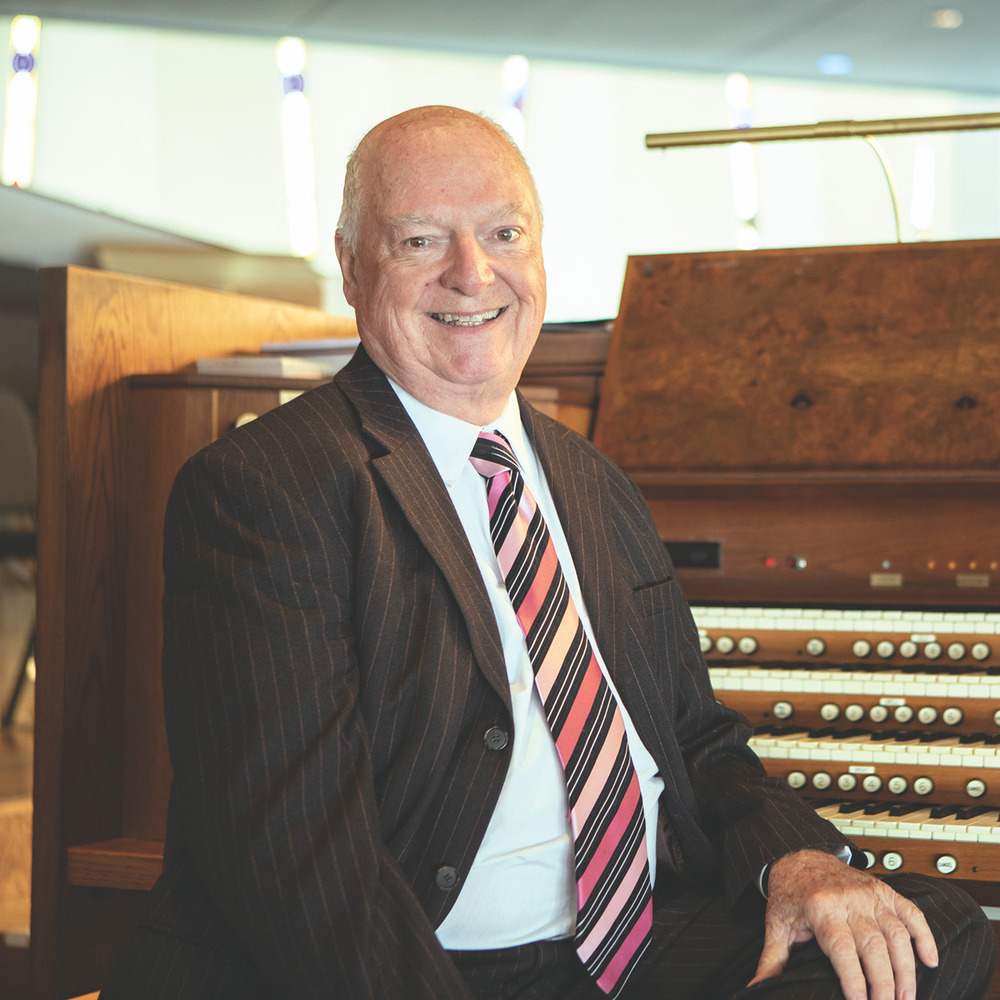

“ALTHOUGH I WAS NEVER A STUDENT AT GUSTAVUS, I HAVE BEEN A FAN FOR YEARS.”
I went to a couple of nearby colleges—Martin Luther College and Mankato State University––and then to the University of Iowa for my master’s. After finishing my graduate degree, I got a job as organist at House of Prayer, a Lutheran church in Richfield with a lot of Gusties.
I also filled in as interim organist at Gustavus for David Fienen, when he took sabbaticals. I experienced chapel services, life on campus, the Gustavus community. As I always say, Chaplain Elvee converted me to Gustieism. It was wonderful working with him. When I was a young guy starting out in the business, Elvee taught me a lot about music and worship.
I wanted my giving to go to something related to church music, and I have had a great connection to Gustavus. This was the place. I knew that Gustavus would welcome the gift, and that it would be put to good use.
It was during this time, in conversations with Chaplain Elvee, that I decided to endow the cantor position at Christ Chapel. The cantor is the person who leads the assembly of believers in song. Being an organist, I’m a little biased, but I think the organ is the best instrument to lead worship. I like guitars on Saturday night, and on Sunday morning I like the organ.
I first wrote my intention for the cantor position into my will. But then, about 10 years ago, I did some more serious estate planning. My dad had been a farmer, but he didn’t want me to be a farmer. Instead, he encouraged my musical interests. He did leave me his land, though, distributed over five different farms. When I first started my estate planning, I created a charitable remainder trust with the College. A year ago, I did that a second time. There are still two farms left that will ultimately go to fund the endowment.
Ultimately, the whole purpose of creating this endowed position is to ensure the tradition of the cantor and organ. Worship based in hymns is less subject to the fleeting styles of the day. Hymns don’t always have to be old, but they do have to have substance and sustenance, not just emotion.
As I was sitting in Christ Chapel recently, I was reminded why this is important. To see all the students; to hear the brass, the choir, the soloist, the student organist. Everything was there. You can do new and creative things with hymns, but they have a historical substance that has lasted for thousands of years. In making my gift, I hope this kind of worship continues for years ahead at Gustavus.
Kietzer joined the staff of House of Prayer in 1973, where he still serves as organist. He’s held leadership roles in various national organizations as well as Gustavus Friends of Music.